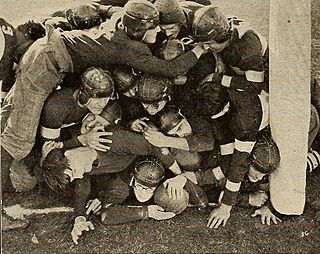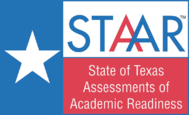Related Research Articles

The Florida Comprehensive Assessment Test, or the FCAT/FCAT 2.0, was the standardized test used in the primary and secondary public schools of Florida. First administered statewide in 1998, it replaced the State Student Assessment Test (SSAT) and the High School Competency Test (HSCT). As of the 2014-2015 school year FCAT was replaced in the state of Florida. The Florida Department of Education later implemented the Florida Standards Assessments (FSA) for English Language Arts, Reading, Mathematics and a Writing or typing test. A Comprehensive science test is still used for grades 5 and 8.

The Texas Assessment of Knowledge and Skills (TAKS) was the fourth Texas state standardized test previously used in grade 3-8 and grade 9-11 to assess students' attainment of reading, writing, math, science, and social studies skills required under Texas education standards. It is developed and scored by Pearson Educational Measurement with close supervision by the Texas Education Agency. Though created before the No Child Left Behind Act was passed, it complied with the law. It replaced the previous test, called the Texas Assessment of Academic Skills (TAAS), in 2002.

The HOPE Program created in 1993 under the supervision of Georgia Governor Zell Miller, is Georgia's scholarship and grant program that rewards students with financial assistance in degree, diploma, and certificate programs at eligible Georgia public and private colleges and universities, and public technical colleges. HOPE is funded entirely by revenue from the Georgia Lottery and is administered by the Georgia Student Finance Commission (GSFC).
Arizona's Instrument to Measure Standards (AIMS) was a standardized test administered by the state of Arizona. AIMS was a standards-based assessment aligned with the Arizona Academic Content Standards. In November 2014, the Arizona State Board of Education voted to replace AIMS with a new test called AzMERIT.
In New York State, Regents Examinations are statewide standardized examinations in core high school subjects. Students are required to pass these exams to earn a Regents Diploma. To graduate, students are required to have earned appropriate credits in a number of specific subjects by passing year-long or half-year courses, after which they must pass at least five Regents examinations in some of the subject areas. For higher-achieving students, a Regents with Advanced designation and an Honors designation are also offered. Students with disabilities or enrolled in an English as a Second Language program are able to earn a local diploma.

In the United States and Canada, a jock is a stereotype of an athlete, or someone who is primarily interested in sports and sports culture, and does not take much interest in intellectual activity. It is generally applied mostly to high school and college athletics participants who form a distinct youth subculture. As a blanket term, jock can be considered synonymous with athlete. Jocks are usually presented as male practitioners of team sports such as American football, basketball, baseball, lacrosse, soccer, swimming and ice hockey.
The Standards of Learning (SOL) is a public school standardized testing program in the Commonwealth of Virginia. It sets forth learning and achievement expectations for core subjects for grades K-12 in Virginia's Public Schools. The standards represent what many teachers, school administrators, parents, and business and community leaders believe schools should teach and students should learn. The Virginia Department of Education, schools, and school systems routinely receive essential feedback on the effectiveness of implementation and address effective instructional strategies and best practices. The Standards of Learning is supportive of and a direct response to the No Child Left Behind Act, which was signed into law by then-President George W. Bush on January 8, 2002. They address student achievement in four critical areas: (1) English, (2) mathematics, (3) science, and (4) history/social studies. Students are assessed in English and mathematics in grades 3-8 and upon completion of certain high school level courses. Science and history SOL are administered in grades 4, 5, and 8 and at the end of completing high school courses in these respective subjects.
The California Assessment of Student Performance and Progress (CAASPP), known until February 2014 as the Measurement of Academic Performance and Progress (MAPP), measures the performance of students undergoing primary and secondary education in California. In October 2013, it replaced the Standardized Testing and Reporting (STAR) Program.
An athletic scholarship is a form of scholarship to attend a college or university or a private high school awarded to an individual based predominantly on their ability to play in a sport. Athletic scholarships are common in the United States and to a certain extent in Canada, but in the vast majority of countries in the world they are rare or non-existent.

The New York State Education Department (NYSED) is the department of the New York state government responsible for the supervision for all public schools in New York and all standardized testing, as well as the production and administration of state tests and Regents Examinations. In addition, the State Education Department oversees higher education, cultural institutions such as museums and libraries, vocational rehabilitation, and the licensing of numerous professions. It is headed by the Board of Regents of the University of the State of New York (USNY) and administered by the Commissioner of Education.
Redshirt, in United States college athletics, is a delay or suspension of an athlete's participation in order to lengthen their period of eligibility. Typically, a student's athletic eligibility in a given sport is four seasons, aligning with the four years of academic classes typically required to earn a bachelor's degree at an American college or university. However, in a redshirt year, student athletes may attend classes at the college or university, practice with an athletic team, and "suit up" for play – but they may compete in only a limited number of games. Using this mechanism, a student athlete has at most five academic years to use the four years of eligibility, thus becoming what is termed a fifth-year senior.
The Colorado Student Assessment Program (CSAP) was an assessment required by the No Child Left Behind Act administered by the Unit of Student Assessment in the Colorado Department of Education (CDE). The CSAP was designed to measure how well students are learning material from the Colorado Model Content Standards, the established content standards that all Colorado public school students should learn. The CSAP only tested four of the thirteen subject areas in the Colorado Model Content Standards.

Topsail High School is a High School located in the unincorporated town of Hampstead, North Carolina. It is part of Pender County Schools. Its current interim principal is Dr. Larry Obeda. Dr. Obeda succeeds the role of Mr. Christopher Madden.

Campbell High School is located in Litchfield, New Hampshire, United States. It is the only high school in the town, with a student population of approximately 550. Newsweek ranked Campbell High School at number 142 out of approximately 15,000 high schools in the United States in its "America's Top Schools 2014" article published in September of that year.

Vincent Memorial Catholic High School is a private, Roman Catholic high school in Calexico, California. It is located in the Roman Catholic Diocese of San Diego The school serves approximately 300 students.
The Pennsylvania System of School Assessment (PSSA) is a standardized test administered in public schools in the state of Pennsylvania. Students in grades 3-8 are assessed in English language arts skills and mathematics. Students in grades 4 and 8 are also assessed in skills relating to natural science, including the field of data interpretation and analysis. Since 2013, high school students have taken the Keystone Exam in place of the PSSA for their standardized testing. The PSSA's were made by a company in New Jersey. The PSSA is written, owned and administered by Pearson Education. There are reporting categories for each subject which list eligible content to be tested in each grade. Assessment Anchors specify what is considered eligible content for each grade level tested. A Proficient or Advanced level is needed to be able to qualify as passing the PSSA.
Student athlete is a term used principally in the United States to describe students enrolled at postsecondary educational institutions, principally colleges and universities, but also at secondary schools, who participate in an organized competitive sport sponsored by that educational institution or school. The term student-athlete was coined in 1964 by Walter Byers, the first executive director of the National Collegiate Athletic Association (NCAA). The term is also interchangeable with the synonymous term “varsity athlete”.

The State of Texas Assessments of Academic Readiness, commonly referred to as its acronym STAAR, is a series of standardized tests used in Texas public primary and secondary schools to assess a student's achievements and knowledge learned in the grade level. It tests curriculum taught from the Texas Essential Knowledge and Skills, which in turn is taught by public schools. The test used to be developed by Pearson Education every school year, although the most recent contract gave Educational Testing Service a role in creating some of the tests, under the close supervision of the Texas Education Agency.
A high school diploma is a diploma awarded upon graduation of high school. A high school diploma is awarded after completion of courses of studies lasting four years, typically from grade 9 to grade 12. It is the school leaving qualification in the United States and Canada.

QSI International School of Astana is a branch of Quality Schools International located in Astana, Kazakhstan. QSI Astana was founded in 2005 as a non-profit, private institution. QSI International School of Astana has an English language of instruction; it offers a curriculum taught entirely in English from elementary school to secondary school. In 2013 a new facility completed construction. The facility contains 32 classrooms, 3 computer labs, an auditorium, gymnasium, cafeteria, library, outdoor soccer field and basketball court, and several playgrounds. Approximately 250 students with over 25 different nationalities are enrolled for the 2015-2016 school year. Classes range from Preschool to High School level.
References
- ↑ Richard Pound (21 April 2009). "NCAA's Clearinghouse Rules - Who's Looking Out for the Student-Athlete?" . Retrieved 1 October 2013.
- ↑ "A Seamless Eligibility Model" (PDF). Tiger Patrol Compliance Newsletter. Jackson State University. September 2012. Archived from the original (PDF) on 21 February 2014. Retrieved 7 February 2014.
- ↑ Katz, Deborah. "NCAA Considers New Standards for Initial and Continuing Eligibility". Strategic Enrollment Management. American Association of Collegiate Registrars and Admissions Officers. Archived from the original on 23 March 2013. Retrieved 7 February 2014.
- ↑ "Divisions I and II Initial-Eligibility Requirements" (PDF). NCAA ELIGIBILITY CENTER QUICK REFERENCE GUIDE. NCAA. Retrieved 7 February 2014.